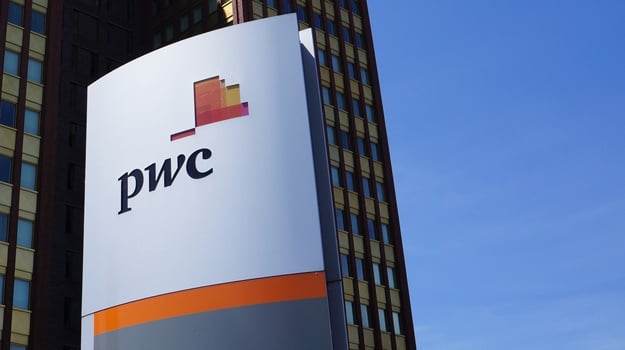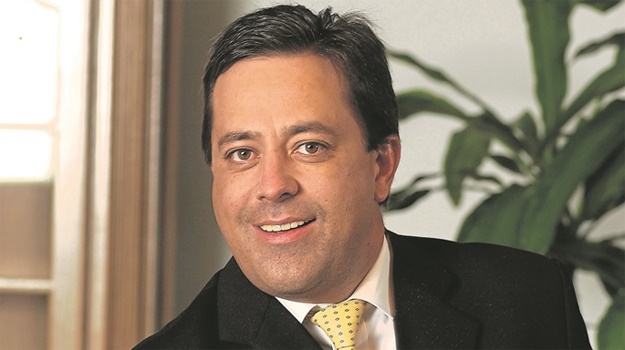Cape Town - Eight questions about Steinhoff you were too embarrassed to ask.
So what's the latest news on Steinhoff's share price?
The Stellenbosch-headquartered global furniture and household goods company's share price has suffered a precipitous decline since its board announced on the evening of Tuesday December 5 that its CEO Markus Jooste was stepping down “with immediate effect”.
The board also announced that new information had come to light relating to “accounting irregularities requiring further investigation”, and that PricewaterhouseCoopers would conduct an independent investigation into its books.
It later clarified that these "irregularities" had been redflagged by its auditors Deloitte.
Shares in Steinhoff International, the multinational's parent company which is dual listed on the Frankfurt and Johannesburg Stock Exchanges, have lost over 85% of its their value since this news broke.
Steinhoff shares, which were changing hands at R46.24 at close of trade on Tuesday 5 December, were trading at only R5.50 at 10:00 on January 3 2018.
The decline means that Steinhoff - in 2016 still referred to in the press as "The Ikea of Africa" and formerly one of the JSE’s ten biggest firms by market capitalisation, now risks falling out of the JSE top 100.
Its market cap is around R20bn, about R180bn less than it was at the start of the December.
Both the JSE and the FSE previously told Fin24 they do not intend to halt trading in Steinhoff shares as price declines, even massive drops, are alone no reason to stop buying and selling.
So what exactly is PwC investigating?
Steinhoff hasn't yet provided further details on what PwC is meant to investigate, beyond restating it involves "certain accounting irregularities resulting from the concerns raised by Deloitte".
It has also not been able to give investors a date for when the investigation will be completed.
In its brief to investors on January 2, Steinhoff said that "whilst all involved are working as expeditiously as possible, the timeline for completion remains uncertain".
But over the past month it has become apparent that the investigation may reach further back than the past financial year.
In early December Steinhoff said that its 2017 audited financial results would be delayed. It later informed investors that its already-published 2016 financials would have to be restated and could not be relied on.
By early January, this list had grown to include the parent company's financial results for the years 2015 and 2016, as well as the financial statements of Steinhoff Investment Holdings - the umbrella company that houses Steinhoff’s African companies and assets - for the years 2015 and 2016.

A PwC building in the Netherlands, where Steinhoff has its corporate seat. (iStock)
Who else is investigating Steinhoff?
Steinhoff is facing at least five different probes in South Africa and Europe, in addition to the PwC probe.
These include investigations by the Johannesburg Stock Exchange, the Financial Services Board, the Department of Trade and Industry and the Companies and Intellectual Property Commission, and a long-simmering German criminal probe.
Parliament’s oversight committee on finance and its Standing Committee on Public Accounts (Scopa) both said in late December they intend to call Steinhoff executives to account to Parliament early in 2018.
No date has, as yet, been set however.
The Public Investment Corporation, which manages the assets of the state’s main employee pension fund, owns about 10% of Steinhoff’s stock, and has lost billions of rands due to the steep fall in Steinhoff shares.
Meanwhile, the Dutch Authority for the Financial Markets, which supervises the financial market sector in the Netherlands, where Steinhoff is registered, is investigating Deliotte's audit of Steinhoff.
What does the German criminal investigation involve?
In November 2015, ahead of its listing on the FSE, Steinhoff confirmed that German authorities had searched the Westerstede offices of Steinhoff Europe Group Services (SEGS), one of its German subsidiaries.
“SEGS is fully committed to support the authorities, and has begun to take immediate steps, in clarifying and resolving these matters,” it said at the time.
The probe fell from view until August 2017, when Germany's Manager-Magazin reported that then Steinhoff CEO Markus Jooste was among employees being investigated by German prosecutors in a 2015 case tied to possible accounting fraud.
Steinhoff at the time denied the content of the article. "The company rejects the allegations of dishonesty contained in the statements. In particular substantial facts and allegation are wrong or misleading," it said in a statement.
German prosecutors have been keeping their cards close to their chests.
The public prosecutor's office of Oldenburg in Germany told Fin24 in early December that “four current and former managers of a group” are being investigated for possible accounting fraud.
It did not however name Jooste, or any other employees.
The statement said the balance sheet of the company it is investigating may have been inflated. It added that German authorities were still scrutinising and evaluating a cache of “extensive documents and data” obtained during searches.
It did not say when these searches took place. And the prosecutor's office said it could not yet say when its investigation would be complete.
So is there a "Mr Steinhoff" and where did the company actually start?
While it has often been lauded as one of SA's most successful global companies, Steinhoff was originally a West German firm.
The company’s somewhat complicated history was laid out in its 1998 prelisting prospectus before it went public on the JSE, and some 17 years before it listed in Frankfurt.
According to the prospectus, the group’s origins date to 1964, when German businessman Bruno Steinhoff, a furniture sales agent, decided to start his own business.
He was successful, especially in forging links with upholstery and furniture producers in the then East Germany.
In 1989, following the fall of the Berlin Wall and the reunification of Germany, Steinhoff acquired a number of businesses in the former East Germany. It later expanded to Poland and Hungary.
In the 1990’s Bruno Steinhoff’s family bought a 35% interest in Gommagomma Holdings, a South African company that manufactured things like lounge suites, bedroom units and diningroom furniture.
Steinhoff apparently liked what he saw in SA and in 1998 Gommagomma, who had by then bought Victoria Lewis, changed its name to Steinhoff Africa.
Steinhoff International Holdings, meanwhile, became the umbrella parent firm under which Steinhoff Europe and Steinhoff Africa fell.
Steinhoff listed on the JSE in 1998. But it already had its eye on further expansion.
“Our business model is to be a low-cost producer and distributor of furniture. Our marketing thrust is global, catering for the mass middle market,” stated its chairman’s report in 1998.
A 2015 company report that looked back at the history of the firm notes that the years between 1998 and 2004 were when it “established the base”. It invested in further low-cost manufacturing, and dipped its toes in the UK and Australian markets.
The years between 2004 and 2015 were a time of “consolidation”.
Major investments include discount furniture and household retailer Poco in 2008, and pan-European home furnishings company Conforama in 2011, as Steinhoff tried to stand toe to toe with the likes of Ikea.
Poco (Steinhoff)
In 2015 it acquired Christo Wiese’s Pepkor Holdings for around R60bn. This was paid for via the “issue of 839 million new Steinhoff shares at R57 per share and R15 billion cash,” according to a November 2014 presentation.
This meant that Wiese, at a stroke, became one of Steinhoff’s largest shareholders, although the value of his shares have fallen sharply in line with the groups share price decline.
Bruno Steinhoff, the firm’s founder relinquished executive duties in April 2008, but continues to serve on its supervisory board as a non executive director.
What is Steinhoff today then?
Steinhoff International Holdings NV is a furniture company and multinational retailer. It also sells shoes, computers, hi-fi’s, tiles, children's clothes, kitchen furnishings, smartphone apps, mattresses and everything from bathroom accessories to short term insurance.
In short, it's massive multinational company with over 12 000 stores in some 30 countries, employing over 130 000 people.
These 12 000 stores belong to some 40 local brands. In South Africa these include Ackermans, Pep, Tekkie Town, Russells, HiFi Corp, Incredible Connection and Hertz car rental, among others.
In Germany, where the company is listed on the Frankfurt Stock Exchange, its subsidiaries include discount furniture and household retailer Poco, with its distinctive red and yellow branding.
If you pop into a Conforma store in France, Spain, Portugal, Italy, Switzerland or Serbia to pick up a new couch, you’ll be buying a Steinhoff product. There are 204 Conforma outlets alone in France.
Buying a mattress from Plush in Queensland, Australia? It's a Steinhoff mattress. If you are doing online shopping in Hungary via Extreme Digital, you’ll be shopping via a Steinhoff subsidiary. In the UK, meanwhile, Steinhoff owns Bensons for Beds, Harveys, and discount homeware retailer Poundland.
Since September 2016, meanwhile, Mattress Firm, America’s biggest mattress retailer, has been one of the group's subsidiaries.
(Photo: AFP)
But it is a South African company, right?
Steinhoff has its headquarters in South Africa and a secondary listing on the Johannesburg Stock Exchange.
But it is registered and has what is termed its “corporate seat” in Amsterdam in the Netherlands.
It also has, since 2015, had its primary listing on the Frankfurt Stock Exchange in Germany. So you could refer to it as a South African-headquartered, Dutch-registered, German-listed company.
Steinhoff listed in Germany in late 2015 because, in the words of its then CEO Markus Jooste, a majority of the firm’s stores, customers and revenues were in Europe.
According to the company’s latest (and unaudited results) for the nine months ended June 30 2017, some 52% of its total revenue came from its European operations. This was followed by 27% from Africa, 15% from the US and 6% from Australasia.
In these nine months - or three quarters of a year - the firm’s revenues amounted to just under €15bn. This would be approximately R242bn at Thurdsday’s exchange rate.
What has happened to Markus Jooste since he resigned?
Jooste has gone underground and remained silent since Steinhoff's board abruptly announced his resignation on Tuesday December 5.
But as Fin24 previously reported, he admitted in a letter to colleagues he made "some big mistakes".
In what seems to be an informal, personalised letter, which Fin24 received from two independent sources who confirmed it to be from Jooste, the former CEO apologised for the bad publicity he caused Steinhoff over the past few months.
"Now I have caused the company further damage by not being able to finalise the year end audited numbers and I made some big mistakes and have now caused financial loss to many innocent people,” he wrote.
"It is time for me to move on and take the consequences of my behaviour like a man. Sorry that I have disappointed all of you and I never meant to cause any of you any harm."
He encouraged his colleagues to "continue to live the Steinhoff dream". After his resignation it was announced that Steinhoff’s chair Christo Wiese will run the company on a temporary basis.
Wiese, however, resigned soon after. The SA billionaire has lost billions of rands in Steinhoff share price fall.
On December 19 Steinhoff announced that it had nominated Danie van der Merwe to become the troubled firm’s acting chief executive officer.
Van der Merwe, 59, was previousythe conglomerate’s chief operating officer.
PLEASE NOTE: This article has been updated several times and will be as new information comes to light so as to keep our readers and existing and potential Steinhoff investors informed.
* Sign up to Fin24's top news in your inbox: SUBSCRIBE TO FIN24 NEWSLETTER




 Publications
Publications
 Partners
Partners












